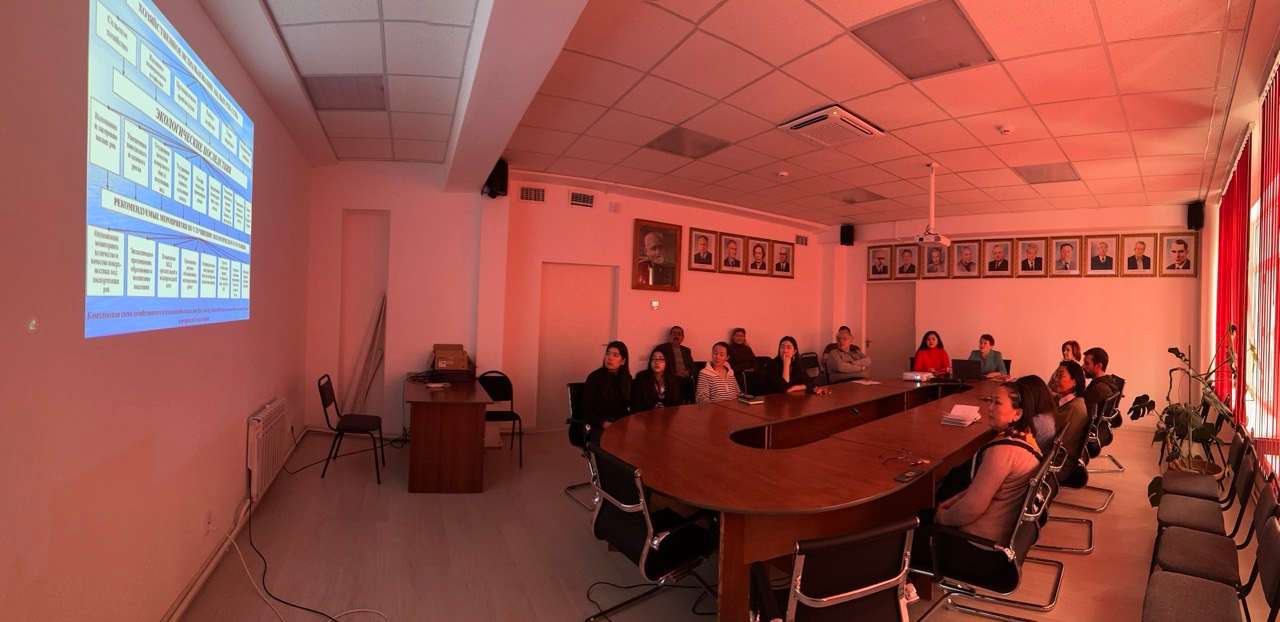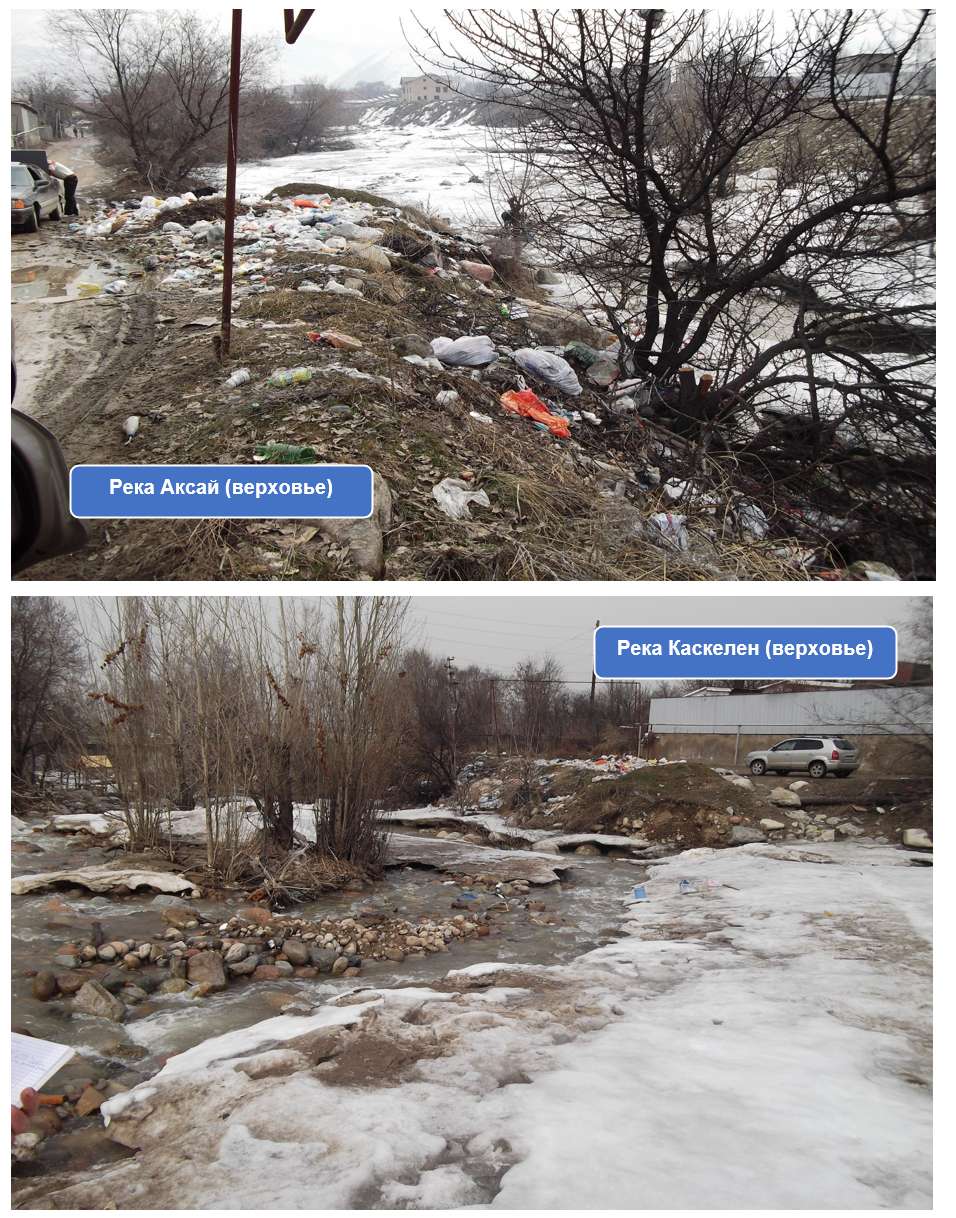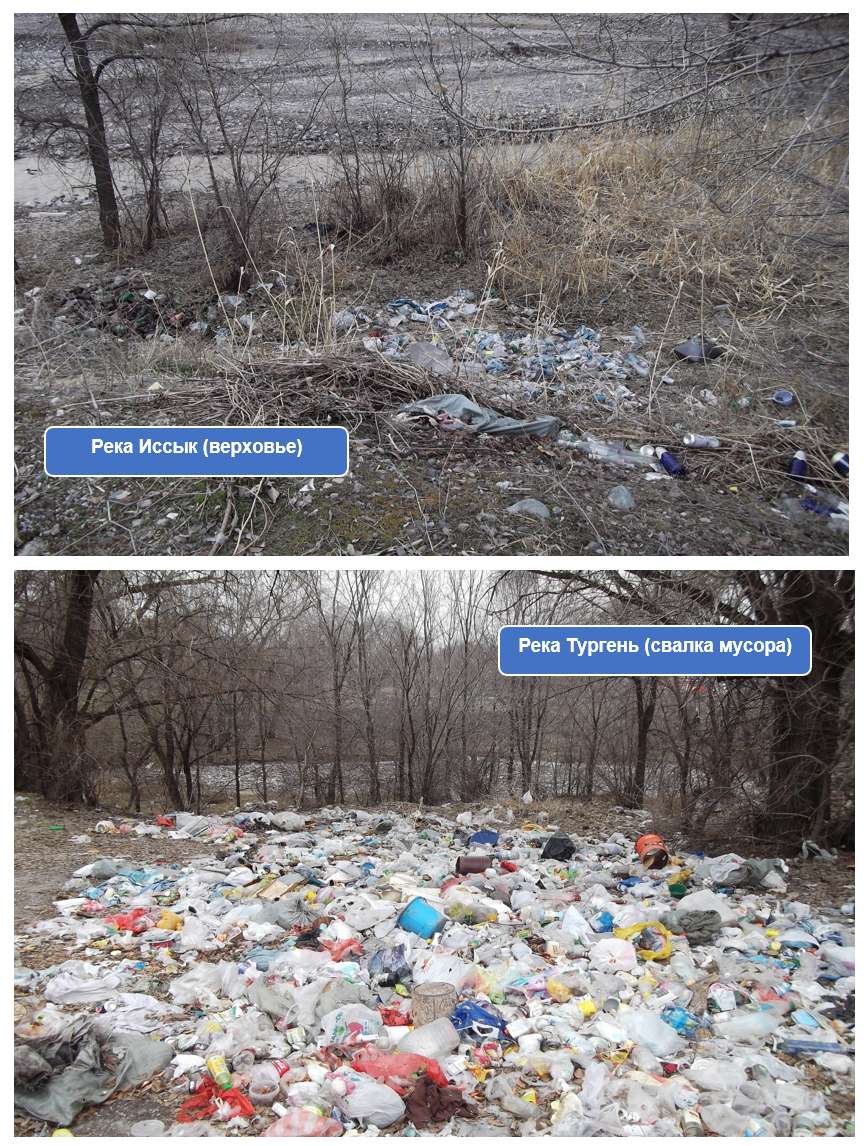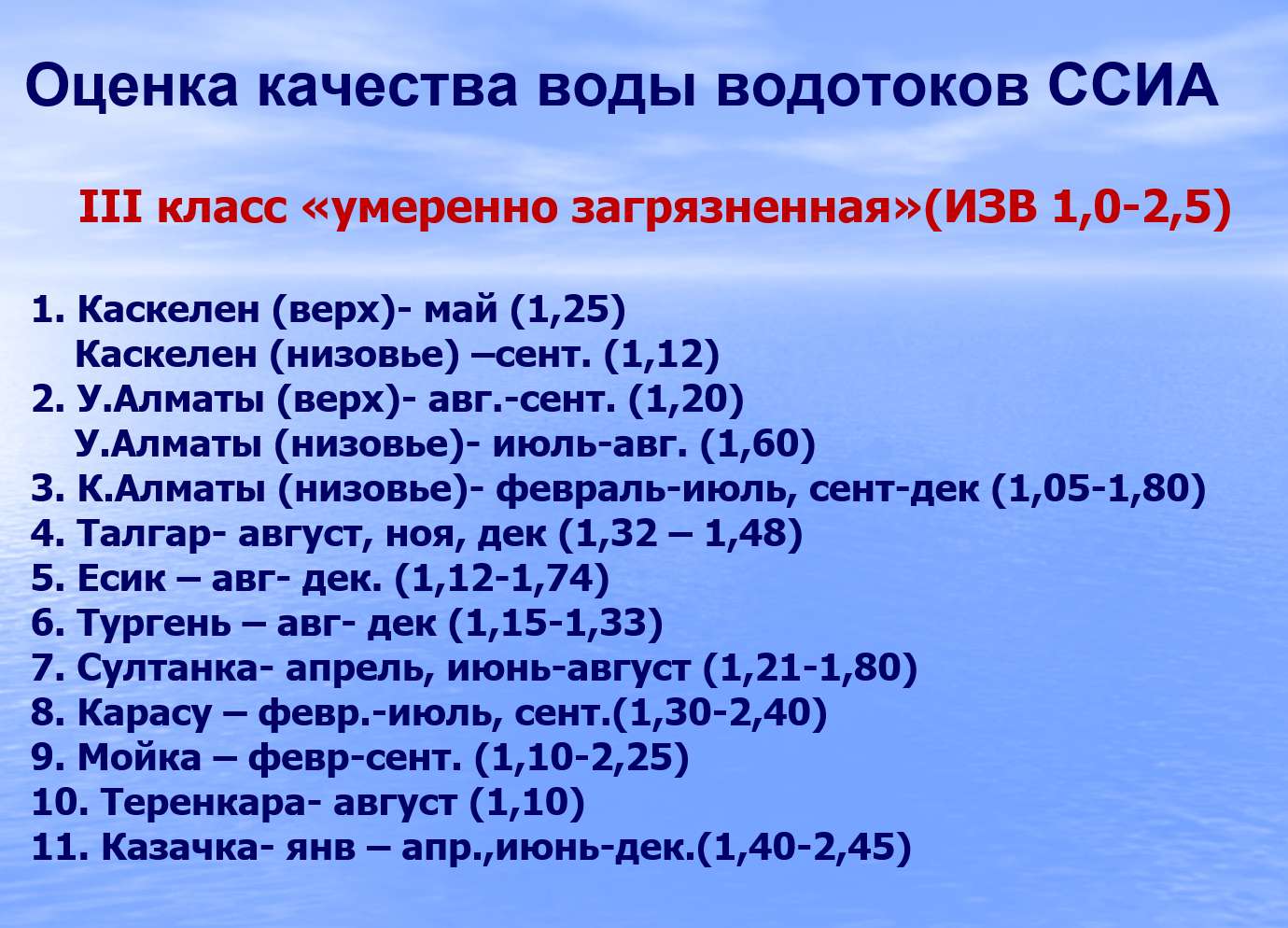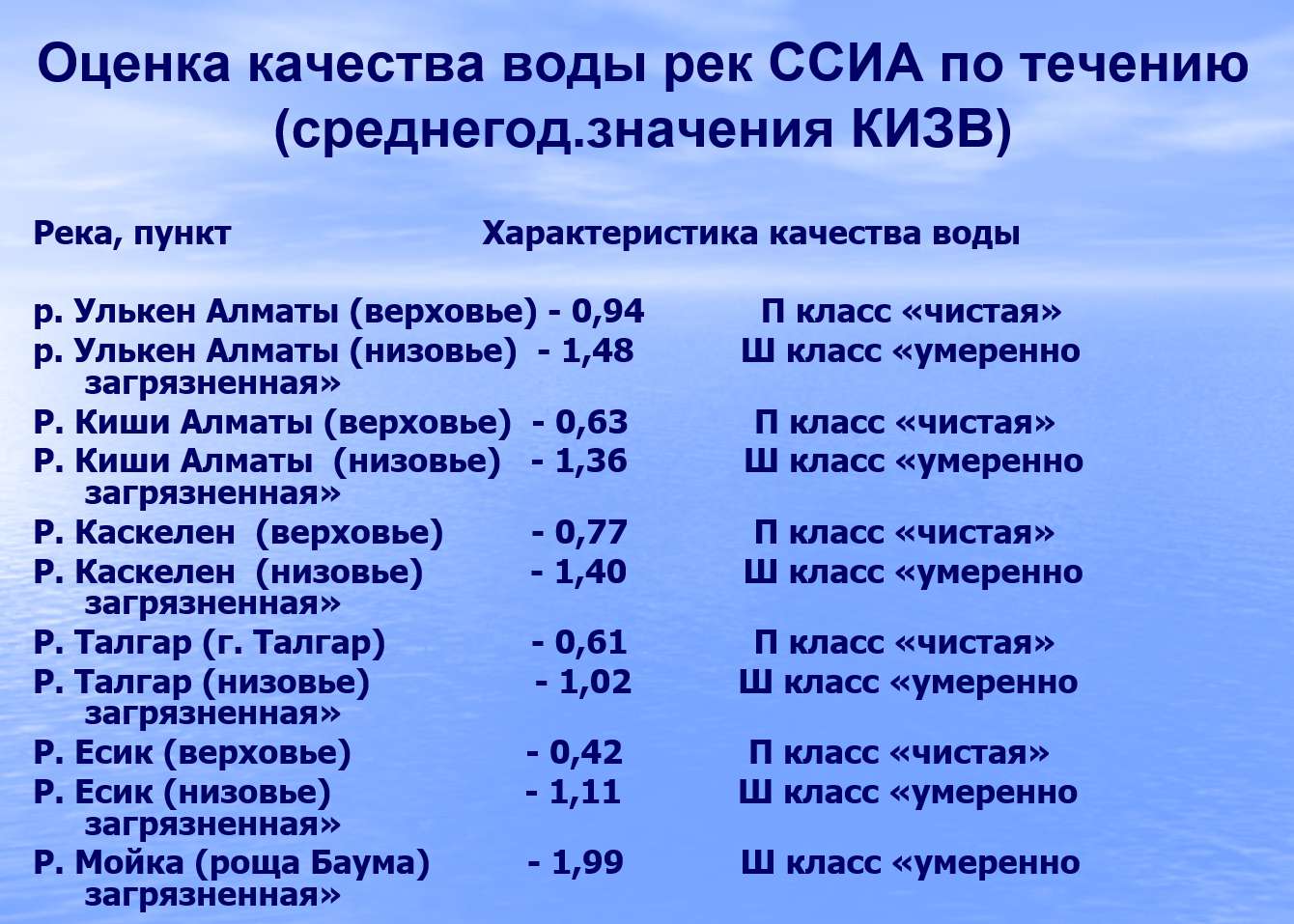“Main Hydrochemical Approaches to Assessing the Quality of Surface Waters (Using the Example of the Ile Alatau Surface Waters)” was the topic of a scientific seminar held on February 14 at the Institute of Zoology of the Republic of Kazakhstan.
The seminar for Institute staff was conducted by Professor Sofia Maksimovna Romanova, Doctor of Geographical Sciences, Chief Researcher of the Laboratory of Hydrobiology and Ecotoxicology.
During the seminar, general questions were discussed first:
- What is hydrochemistry and how it relates to other sciences (ecology, hydrology, hydrobiology, ecotoxicology, hydrogeology, geochemistry, geography, soil science, meteorology, etc.)
- The main tasks of hydrochemistry
- The quality of natural waters and the criteria for its assessment
- Regulatory documents used to determine critical levels of anthropogenic pressure on rivers, lakes, and reservoirs in Kazakhstan, along with other guiding documents
- MAC (Maximum Allowable Concentrations) for bodies of water used for fish farming, domestic drinking, and cultural or domestic water use
- The general classification of water bodies by pollution level, and so on
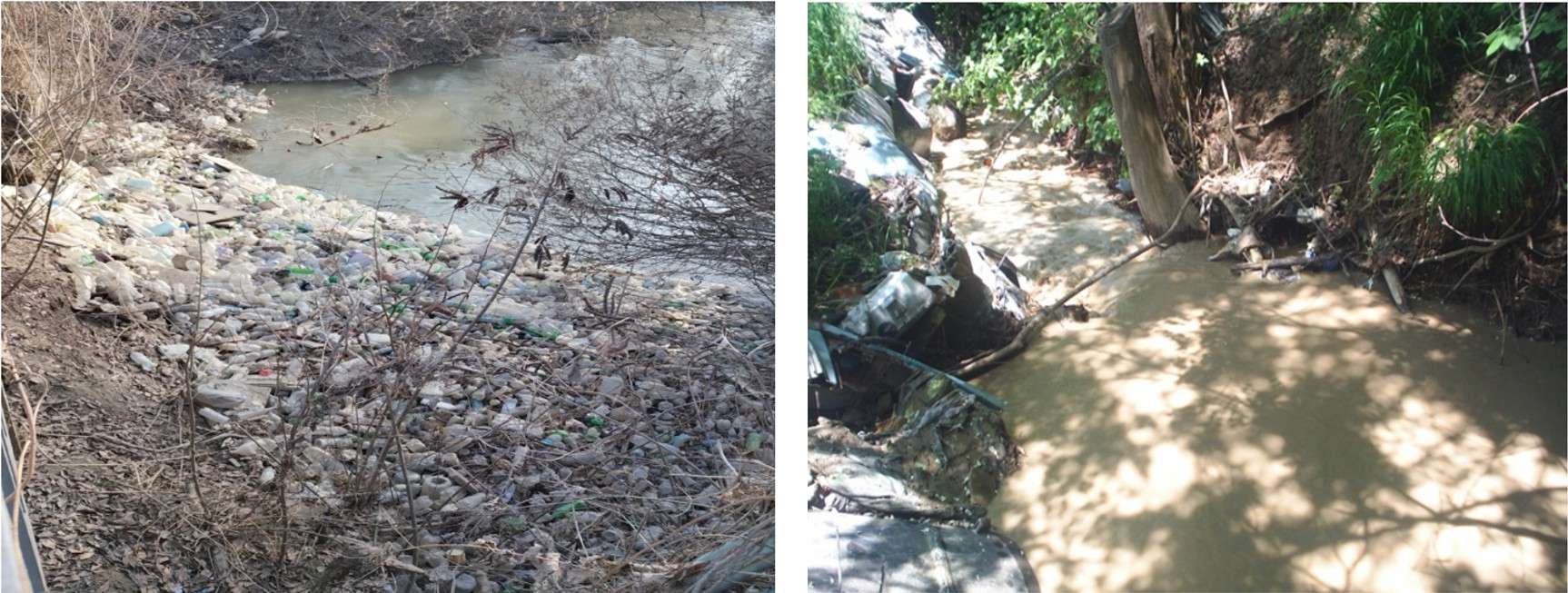
Status of small rivers on the northern slopes of the Ile Alatau
Next, using the example of small rivers on the northern slopes of the Ile Alatau (Kaskelen, Aksay, Bolshaya and Malaya Almatinka, Issyk, Turgen, etc.), the seminar examined how various factors—both natural and anthropogenic—affect water purity, the condition of the rivers’ water quality, the ecological consequences of pollution, and measures to improve the ecological status of rivers.
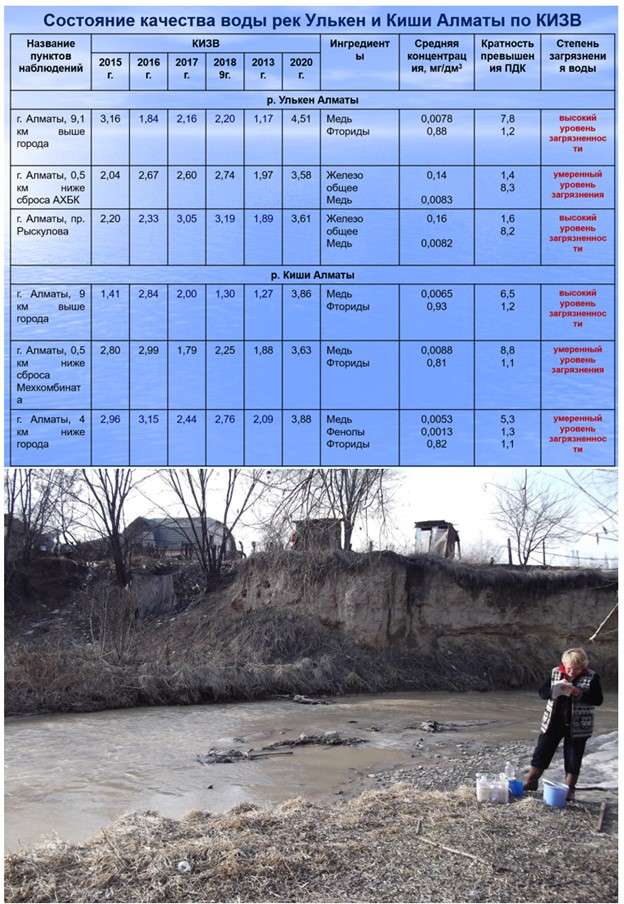
Conclusions:
- The main approaches to assessing the quality of surface waters using hydrochemical indicators (MAC, Maximum Allowable Discharge, Predicted Environmental Concentrations, various coefficients, etc.) do not yet provide a clear answer about their usability. The “Unified Classification…” requires careful refinement.
- Currently, pollution in the small rivers of the Ile Alatau generally does not exceed the rivers’ self-purification capacity, but the pollution level is still significant (salinity/mineralization increases 2–3 times downstream). It is therefore imperative to undertake serious measures to preserve these small rivers and protect them from escalating pollution and depletion.
- The rivers in the area under consideration, especially those passing through Almaty city limits, face heavy anthropogenic pressure as a result of industrial toxic emissions into the near-surface layer of the atmosphere, soil, and water, the discharge of wastewater and storm drainage into the rivers, the accumulation of household, industrial, and construction waste in small riverbeds, and the contamination of water protection zones and strips. Moreover, diffuse pollution sources (chemical production, agriculture, land reclamation, polluted atmospheric precipitation, etc.), which act in a dispersed manner over watershed areas, are becoming increasingly dangerous.
- Compared to other rivers (Syrdarya, Ile, Shu, Talas), the rivers on the northern slopes of the Ile Alatau are relatively less polluted.
- Nevertheless, in such an ecological setting, there is an acute need for a comprehensive approach to ensuring rational and uninterrupted water supply while maintaining the environmentally sustainable status of water bodies and protecting them from depletion, littering, and pollution.
The presentation elicited great interest and numerous questions, both regarding the water quality of Ile Alatau’s rivers and those in other regions of Kazakhstan, related research areas, the impact of water quality on other indicators, and general issues.
About 30 people participated in the seminar, with some colleagues joining online. From the Institute of Zoology, ichthyologist Talgarbai Konysbaev participated. Water is the source of life, and much depends on its quality, including the preservation of ecosystems and biodiversity. Let us treat our natural resources responsibly and with care!
February 17, 2025

